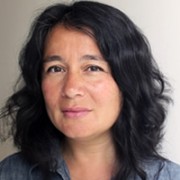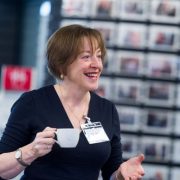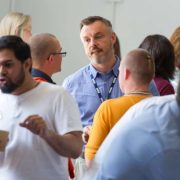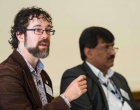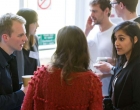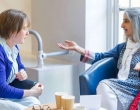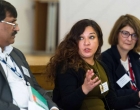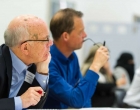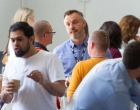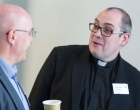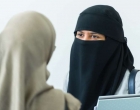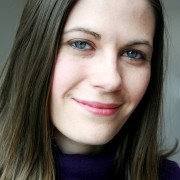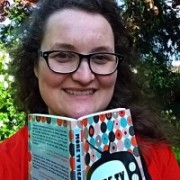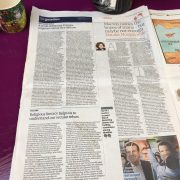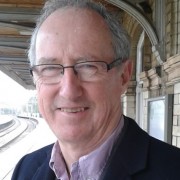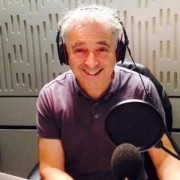Meaning and the Media – the Sandford St Martin Awards 2017
/0 Comments/in Awards, General /by Angela GrahamOn the evening of 7 June the 2017 Sandford St Martin Awards were handed out during a gala ceremony held at Lambeth Palace. Again this year, the Trust had the honour of hosting some of the most talented programme-makers, broadcasters and journalists engaging with the subject of religion, belief and ethics in the UK today. Among them was the TV producer and writer Angela Graham who has written about the Awards in her blog.
Photos below are by Charlie Fordham-Bailey
Angela’s profile photo on the ‘Latest Posts’ page is copyright @HirstPhotos
Meaning and the Media – the Sandford St Martin Awards 2017
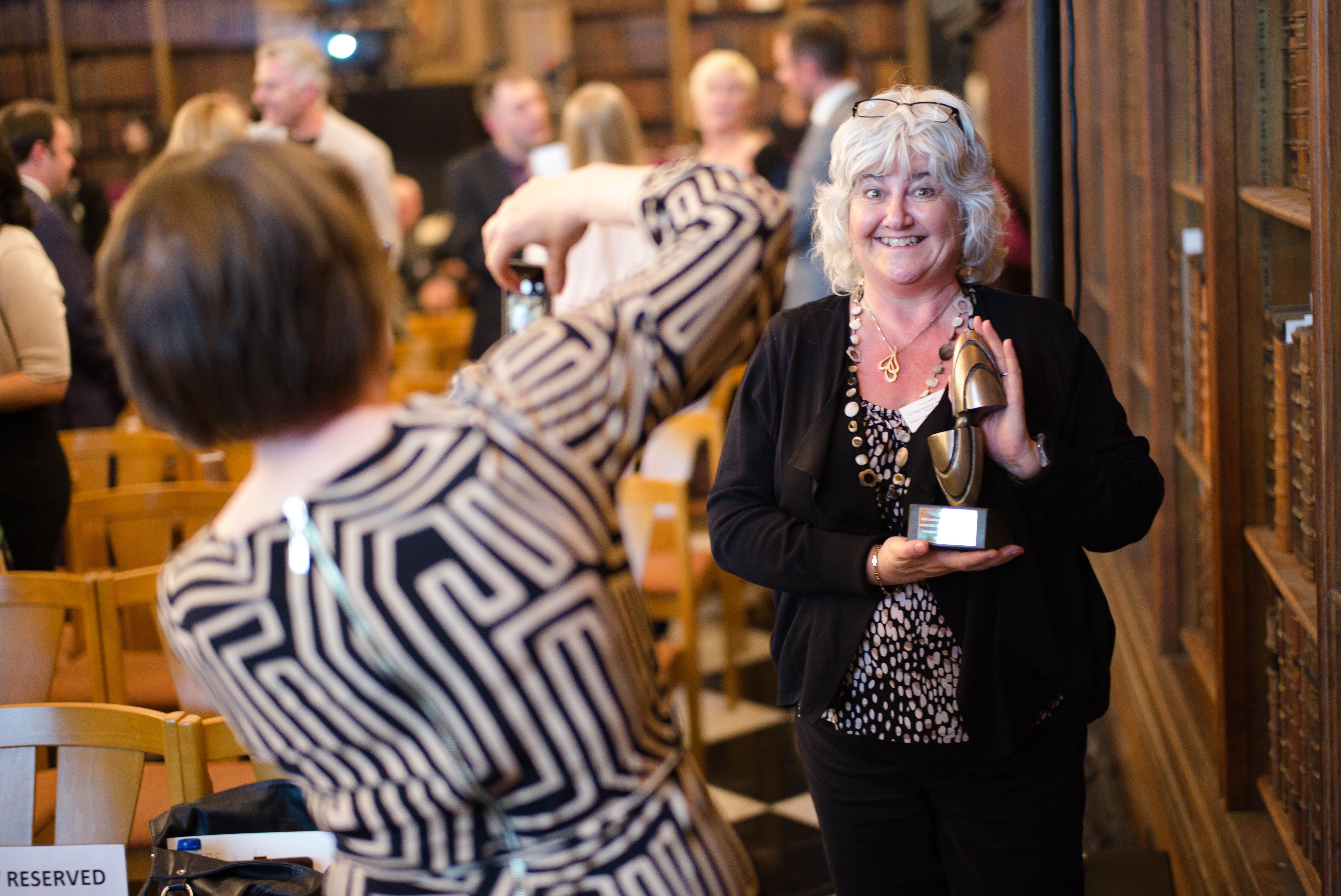
Karen Walker, Producer of ‘All Things Considered: Aberfan 50 Year Anniversary’ made by the Religious Programmes Department at BBC Radio Wales, winner of the 2017 Radio Award, photos by Charlie Forgham-Bailey
by Angela Graham
The Sandford St Martin Awards made me greedy. How could they tempt me with such a rich list of nominations and not expect me to want to indulge in all of them as quickly as possible!
Marian Partington on forgiving Fred and Rose West who killed her sister, or the great Marilynne Robinson on Fear, both in the Interview of the Year shortlist, or ‘Muslims Like Us’ with its reality-tv take on a major faith’s diversity and unifying core or, ‘The Selfless Sikh’ about a faith impelling humanitarian action … Could you blame me for wanting to absorb them all straight away?
Despite the range of topic and approach across the 30 finalists there is a prominent common factor, and it’s what makes the line-up such an attractive one: engagement with why people are making particular choices; helping or damaging others; living as they do. The programmes examine not only who’s doing what, when and where but the deep motivations that push them to grapple with the tangibles and intangibles of life.
Such interrogation is not confined to Religious Programming but this genre steps out into that intriguing area of an individual’s relationship to a Being or a Universal Agent and the ramifications of that for a person’s relations with others: the religio part of religion, the One with the Many. And the Absolute – it takes that on too.
The truths we live by appear to be increasingly various. Even those who live within the parameters of the most established of creeds must attend to a multiplicity of belief positions around them. I will definitely be looking out for the radio documentary, ‘Canada’s Atheist Minister’ (BBC Production North for BBC World Service) which offers insight into the experience of a pastor who found herself delivering a sermon in which she stated that she didn’t believe ‘in a God who answers prayer’ or fulfil many of the requirements usually expected of a deity and certainly not a Christian one. Radio can put me in touch with this fascinating experience.
I’d say it’s easier to get below the surface of atheism in Britain via the media than in face-to-face encounters. There is a substantial amount of ecumenical and inter-faith activity but far fewer opportunities for dialogue in depth between those of religious faith and those without it. This is the Cinderella dialogue in my own Church, the Catholic, despite encouragement from the Vatican.
Several years ago I trialled such an encounter group in Cardiff, calling it Meaning To Live because that name seemed to me an indication of the common ground. I don’t think we hit on the perfect methodology but we found a way to have the sort of open, mutually respectful, willing-to-learn, robust conversation we hadn’t found the opportunity to have anywhere else.
It concerns me that we don’t have many arenas in which we can examine belief in the sense wider than, but including, the religious. This is one reason why the media are so important and why it’s equally important to provide media professionals with the tools to handle issues of belief and faith well.
On the Sandford St Martin site are two blogs I’ve written about an initiative for journalists run by the training arm of the NUJ in Wales. This aims to give journalists access to expertise and resources which can enable them to improve their coverage of news and current affairs that have a religious or belief aspect. In Wales, until I gave a modest class on the subject this January at Cardiff University, no School of Journalism had offered any teaching at any level on religious literacy and, before these workshops, there was nothing on offer for professionals either. I’m glad to say the interest has been significant and we’re in discussion about a third event.
The profile of religious literacy is rising and, as it does so, critique of justification for it and of its worth relative to that of sociology is needed. Prof. Adam Dinham’s work at Goldsmith’s is prominent. His book, Religious Literacy in Policy and Practice Bristol: Policy Press Dinham A & Francis M (eds) (2015) is essential reading.
It’s good to see the current BBC review of its Religious, Ethics and Philosophy programming under Mark Friend. If the Sandford shortlist is anything to go by, it’s the PSB BBC that is doing the heavy lifting in these fields.
As a broadcaster in Wales it was an especial pleasure for me that the Radio Award was won by ‘Aberfan 50 Year Anniversary’, a programme within the long-running, weekly religious affairs series, ‘All Things Considered’. Director, BBC Cymru Wales, Rhodri Talfan Davies tweeted last night, ‘Quality counts − a superb team who deliver each and every week’. They certainly do. Producer, Karen Walker and Presenter, Roy Jenkins are ‘modest beyond’, as the Welsh say. Karen would never tell you that the walls of her office are invisible beneath the array of awards acquired over the years. Now they have a trophy to find a spot for.
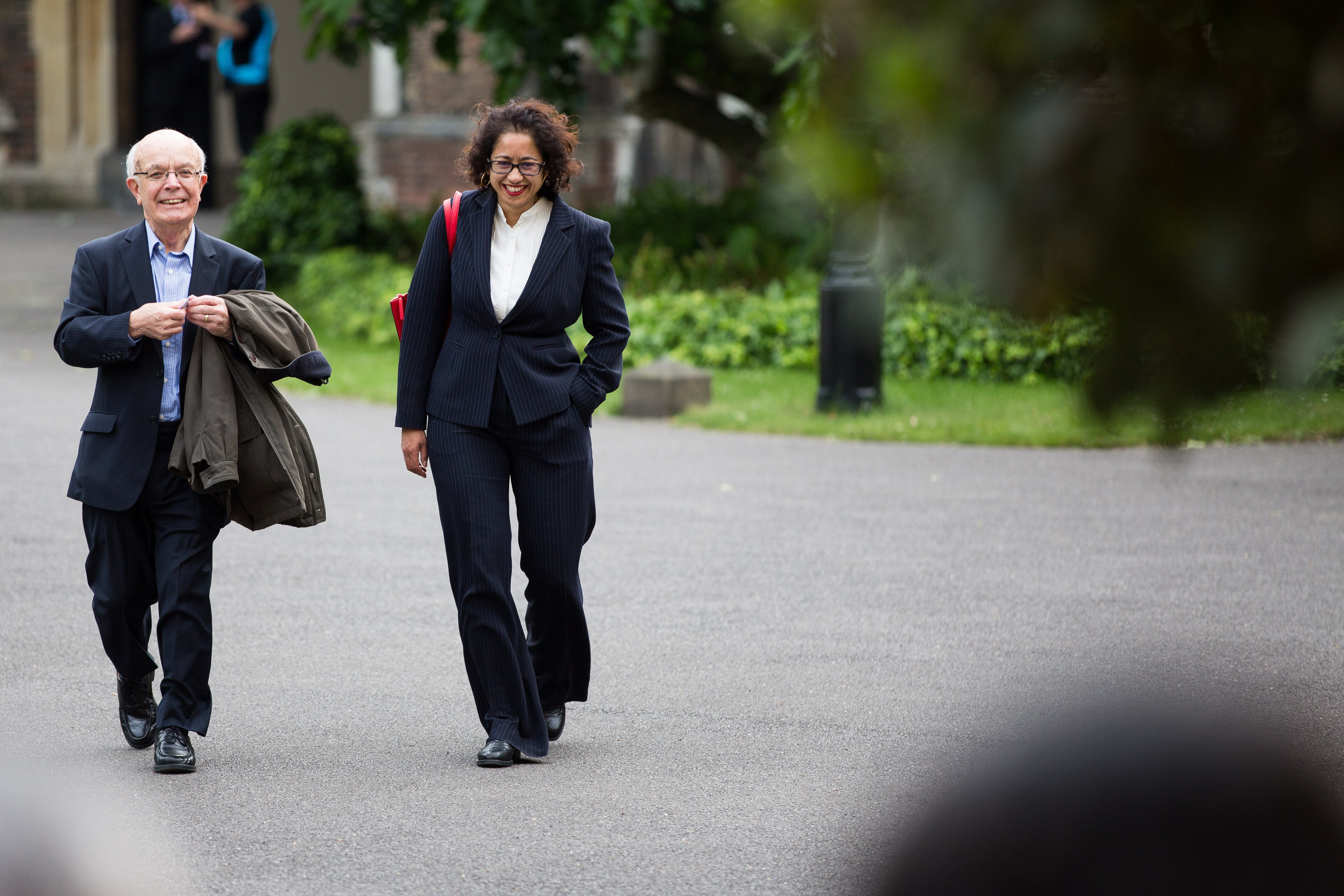
Rev Roy Jenkins with fellow broadcaster Samira Ahmed arriving at the Sandford St. Martins Awards 2017 held at Lambeth Palace.
For a full list of the 2017 Sandford St Martin winners click here.
Find out more about Angela on her website: http://angelagraham.org/
Reporting Belief 2017: An appetite for engagement
/0 Comments/in General, Outreach /by Angela GrahamGiven current geo-politics and the nature of conflict and social strife across the globe, religious literacy has become more important than ever – and journalists and broadcasters have a key role to play. Because religious literacy is not only an understanding or familiarity with religious texts or practices, it’s also an understanding and appreciation of how people’s beliefs or religions shape their politics, their communities, their relationships and their hopes for the future. And so for journalists, if you’re lacking the tools or experience to understand the role religion or belief plays in human affairs, you’re unequipped to properly understand or communicate to your audience what the story is. Religious literacy matters. Increasingly so.
In Wales, NUJ Training has been energetic in helping journalists engage with belief (and in helping belief communities to engage with journalists) by offering participants expertise, resources and the opportunity both to examine their own personal viewpoints while honing their professional skills.
In November 2016, two young Sandford St Martin interns blogged for us about “When Religion Makes the News” the first NUJ Training workshop held with ITV Wales. Below the Welsh journalist and trainer Angela Graham, writes about their latest event “Reporting Belief 2017” held in May.
This blog was first published on the NUJ Training Wales website and is reproduced here with their kind permission.
Photographs are by Natasha Hirst @HirstPhotos
Reporting Belief 2017: an appetite for engagement
By Angela Graham
What a day! At Reporting Belief 2017 on May 10th (#RB17) two ‘communities’ who often clash − journalists and ‘believers’ – came together to understand one another better. Of the 88 people who attended, 44 were journalists from press, broadcast and online media.
An immediate, ground-breaking result is ITV Cymru Wales’s offer to do a series of feature reports of around 3 minutes on their nightly news show Wales At Six on a range of belief groups in Wales over a period of around a year.
In the context of the BBC’s current review of its output in Religion, Ethics and Philosophy this commercial broadcaster’s imaginative initiative – beyond the terms of its licence − raises the profile of belief on English-language TV in Wales at a stroke given the scant provision by BBC Cymru Wales of English-language factual TV output in these areas.
But this was a day focused on news, and on quality of engagement rather than breadth of output.
Two ‘communities’ wanting to engage: understanding ‘those who are not like us’
Reporting Belief 2017, held on 11th May at BBC Cymru Wales’ Cardiff centre, followed on from When Religion Makes the News (#ReportingBelief16) last November, a workshop for journalists and representatives from the spectrum of beliefs and ideology in Wales about religious literacy and the reporting of belief.
At #RB17, representatives of religions, and of belief systems such as humanism, shared with journalists ways in which they feel misunderstood and misrepresented; journalists, in turn, explained their frustrations with belief communities who don’t engage well with the realities of the media.
This was a bold example of collaboration to address a challenge that affects us all: how to understand those who are not like us, in this case in the area of faith and belief. The mutual willingness to overcome these gaps demonstrated a readiness for a new kind of relationship.
Wales leading the way
Reporting Belief 2017 is at the forefront in meeting a need that is felt ever more acutely by communities around the UK. Dr Sheila Gewolb, Vice President of the Board of Deputies of British Jews, recognised this warmly in saying, ‘We applaud your event. This particular kind of encounter and dialogue is not happening in London. The Board of Deputies is taking a keen interest in it.’
There can be no doubt now of the appetite for training and resources – journalists need input which helps them both understand the complexities of belief (whether religious or secular) and the journalist’s role in interpreting the effects of belief on society; ‘believers’ need opportunities to learn how to engage productively with the media.
Filling the training and research gaps in religious literacy
How can such training for journalists be resourced and provided? A case is building for universities in Wales to bring religious literacy into the curriculum for journalism courses, at least at post-grad level. Cardiff University School of Journalism, Media and Cultural Studies is ‘actively discussing’ this option.
But it is essential, in such training, to have objective expertise in religion and belief that is independent of institutional or credal claims. There is a pressing need for research related to Wales, currently under-represented in resources in this area.
Media organizations themselves can examine the adequacy of their in-house training.
A case-study in journalistic practice
The day began with a session for journalists: Muslim Communities – connecting with the grassroots. Three experienced BBC journalists offered best practice advice, chaired by Dr Michael Munnik from the Centre for the Study of Islam in the UK at Cardiff University.
Sajid Iqbal, a senior broadcast journalist with BBC News in London, advised, “If you don’t understand Pakistan you don’t understand the Muslim communities in Britain.” Muslims of Pakistani origin represent the largest single ethnic group among Muslims in the UK.
He recommended getting to know the networks of Pakistani journalists in the UK, explaining that many are not full-time but are resourceful and well-connected at local levels, aspiring to do good journalism. “Stories come from relationships”, he said. The centrality of relationships was a mantra throughout the day.
Yasminara Khan is a journalist at BBC Newsnight who has done much work on Asian women’s issues. She stressed the importance of ‘talking to everyone’ and of getting strong case studies which only come if you show you are trustworthy: “If people feel you can deliver that story accurately they will give it to you.”
Innes Bowen is the author of Medina in Birmingham, Najaf in Brent: Inside British Islam, about the networks behind the UK’s mosques. She is in charge of investigations at BBC Newsnight. She encouraged journalists to make good use of their personal strengths to create connections widely with people. She is “into analytical journalism, the detailed stuff” and this had led her to spot novel angles such as a story about the inadequacy of the census returns concerning Somalis which led to them being under-represented and their interests under-funded. But, she stressed, this needs to be supported by a willingness to invest time with people, to spot a story in what, at first glance, appears to be a Public Service Announcement.
The need for open fact-sharing
A lively plenary session followed in which the broadcasters’ records on diversity and portrayal were challenged, as were some of Innes Bowen’s statistics about the managements of mosques in Wales and inferences that can be drawn about the denominational allegiances of worshippers from those of mosque management committees. This exchange underlined the need for both open fact-sharing and discussion of perceptions and experience.
Emma Meese and Matthew Abbott of Cardiff University’s Centre for Community Journalism (C4CJ) delivered excellent afternoon workshops on social media use and the writing of press releases.
“Above and beyond the frustrations with each other is a common desire to communicate things that matter”
This was an event full of variety and of life. The ‘believers’ who attended, whether religious or secular, are engaged with living meaningful lives; journalists thrive on the vital, the real, the now. Above and beyond the frustrations with each other is a common desire to communicate things that matter.
The NUJ Training Wales website will shortly add to its religious literacy resources some additions arising from the day.
The event was free due to NUJ Training Wales’ funding from Welsh Government and support in kind from BBC Cymru Wales and C4CJ. Currently, the NUJ is exploring funding sources to continue this important, innovative work.
Feedback from the event shows an appetite for greater in-depth encounter between journalists and believers.
Beyond News, the ways in which broadcast genres engage with Religion and Belief, Ethics and Philosophy (via news, current affairs, documentary, factual formats, drama etc) across radio, TV and online require careful distinction and consideration; as do the claims of these areas within a Public Service Broadcasting and a Commercial media menu. But that’s another chapter in the story.
_______________________________________________________________
Photographs by Natasha Hirst @HirstPhotos
You have permission to use these photographs for purposes related to this event (e.g. for newsletters). If you would like to use any for general purposes such as a profile picture on your website please contact
Natasha Hirst: natasha@natashahirst.co.uk
For more information about NUJ Wales Training and their work, visit their website or follow them on Twitter @NUJTrainWales
Inspiring interviews
/0 Comments/in Awards, General /by Bryony TaylorWith the ever-increasing number and quality of entries received by the Trust year on year, judging the Sandford St Martin Awards has become more and more of an immersive experience. Not least for our shortlisters who are charged with having to negotiate long lists of sometimes very different programmes, made for very different audiences with hugely varying budgets. Agreeing a final few for the shortlist is never an easy task and, what shortlisters tell me is that, even after the final list has been agreed, they’re often “haunted” by a programme that personally resonated with or inspired them but isn’t in the final running for an Award.
Such is the case with Bryony Taylor, a priest and the assistant curate at St Michael and All Angels Church in Houghton-le-Spring, who helped shortlist in this year’s Interview category. In a vlog, originally posted and which you can watch on her own website, Bryony drew inspiration from “A Thousand Words” with Iain Campbell, a programme made by GRF Christian Radio for the smallVOICE podcast.
Iain Campbell is a portrait painter and Artist in Residence at St George’s Tron Church of Scotland in Glasgow city centre. In this interview he talks about his painting ‘Our Last Supper‘.
Inspired, Bryony used the painting to inform her own meditation for Lent.
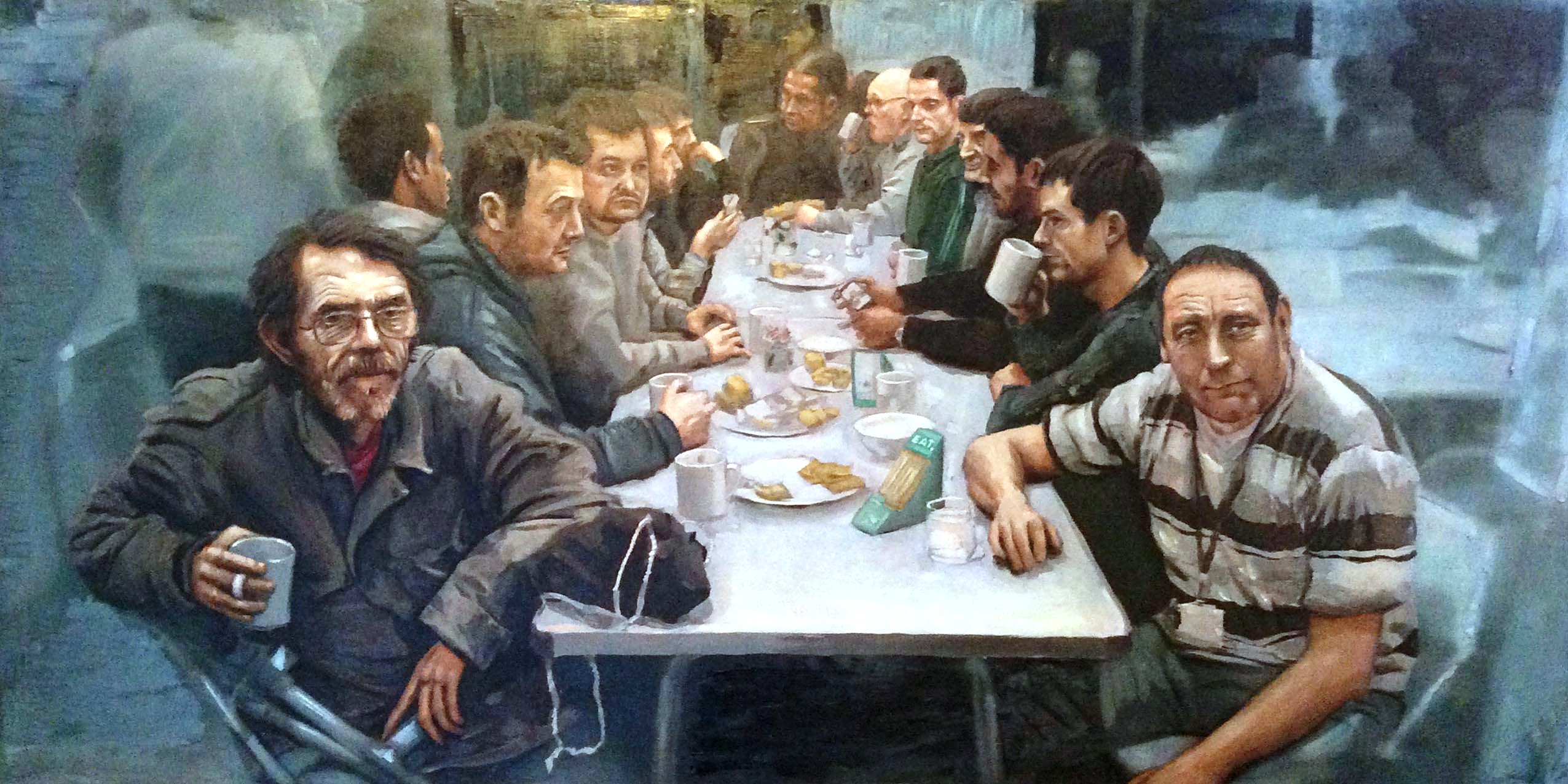
This is a painting imagining a modern day Last Supper – Jesus with his disciples around a table. The figures in the painting are the men that attend a homeless charity in Glasgow. Our images of Jesus and the disciples are often sanitised. We have images of men in long flowing robes with beards and halos walking around. In reality, Jesus based his ministry in the forgotten North East of a forgotten part of the Roman Empire. The back of beyond, literally. He chose as the people to spend his time with, those on the edge of the community. The people excluded by others. The poor fishermen scratching a living on the shores of Lake Galilee. A young man that was part of a terrorist cell seeking to resist the Roman occupation. A hated employee of the government, a tax collector. Not to mention various women, some of whom had a history of mental health problems, others who were wealthy widows who put the lads up when they were visiting from town to town.
Look at this painting.
Many people ask which one of the men is Jesus. But the artist deliberately left it unclear. Judas had to go over in the Garden of Gethsemane and embrace Jesus to let the guards know which one Jesus was; it wasn’t obvious which of them was Jesus.
Where do you see Jesus?
Do you see him in different places, in different people?
The artist chose to paint the Last Supper because Jesus said ‘Do this in remembrance of me’ – share a meal together to remember me. Don’t remember me in the isolation of the cross, all alone. Remember me among friends, around a table, enjoying food together. This is how I want you to remember me.
Our thanks to smallVOICE, Iain Campbell and Bryony for sharing their work with us. It’s worth knowing both that you can see the original of Iain’s painting at The Wild Olive Tree café in Glasgow and that Bryony is the author of the book ‘More TV Vicar?‘ a enthusiast’s romp through the annals of British television to discover what Christians on television say about our attitudes to religion and the religious.
“Religious literacy helps us to understand our secular selves”
/0 Comments/in General /by Anna McNameeThe Problem with Choosing a Sandford Award Shortlist
/0 Comments/in Awards, General /by Roger BoltonThe Importance of Being a Children’s Broadcaster
/0 Comments/in Awards, General /by Frank Cottrell BoyceThe Sandford St Martin Trust has been making annual awards for the best radio and television programmes about religion, ethics or spirituality since 1978 – so, by comparison, our Children’s Award is still something of a youngster. Ah, but what a precocious and forward-thrusting youngster it is! Last year’s judging panel was chaired by the writer and broadcaster Frank Cottrell Boyce. Below is the speech Frank delivered on that night – both a celebration but also a passionate argument for the importance of children’s broadcasting.
“I’d like to begin by thanking my fellow judges Rachel Moseley, Anna Bassi and David Hallam because we had such a great time! We had such a great time judging this list. Not just because all the work on it was so impressive but because there was something really rejuvenating and moving about seeing just how much ambition and creativity and commitment people had put into making these films. Long running series like Newsround which you can see really upped its game to deal with the Hiroshima story. And those little films that you saw from True Tube – people had really kind of stretched. You could feel how much they had stretched their resources and their imaginations to help young people deal with those big, big questions. We saw animation and dramatisation and historical testimony: huge palettes of techniques being brought to bear on these questions.
“When young people engage with questions like immigration, sexuality and their own mortality and morality, they’re not puzzling over intellectual questions, they’re building their own identities. And in doing that they are building the future identity of this nation. So huge praise is therefore due to the BBC who, among all the broadcasters, absolutely – to use a teenage phrase – “owned” this shortlist. The absence of the commercial broadcasters from it, I think, is depressing – but also really dangerous. I’m going to follow the Archbishop’s lead in quoting Simon Schama who said that our society offers our young people two options: shopping or extremism. And if our cultural arbiters vacate the field on which our young people wrestle with the great questions, then other forces will step in. These are questions which have to be answered. And if we don’t help young people grapple with the complexity of those questions, then there are other people who will cheerfully come along with murderously simple answers. To leave a gap in the schedule around this area is to leave a hole in our nation’s heart.
“Having said all of which both the winner and the runner-up celebrated the resourcefulness, the resilience and, most of all, the kindness of children.
Our runner-up gave one of the most heart-stopping moments of television I’ve seen in a very very long time. In the clip you’re about to see, Ella has just completed a sponsored run for her Grandad who is suffering from Alzheimers.
“Tonight’s winner, just like the runner-up, comes from the world of scheduled television. I love my podcasts. I love YouTube as much as anybody and I think that iplayer is one of the great wonders of the world. But the downside of choice is that it can also lead us to create our own digital safe spaces – so, God bless the Radio Times. I was emotionally ambushed by Ella’s Grandad and our winner, too, did that thing that really only scheduled television does best of all, which is to make you really care about something you didn’t really think about that much before. To put a human face on a big political story – and what a face! A boy named Ahmed who has swagger, and insight and eloquence and, above all, a bicycle. So I’m really really delighted to announce that the winner of this year’s Sandford St Martin’s prize for Children’s broadcasting goes to My Life: The Boy on the Bicycle which was made by Drummer TV for CBBC’s My Life. “
When Religion Makes the News
/1 Comment/in General /by Ekene Oboko and Nana-Abwoa Mbeutcha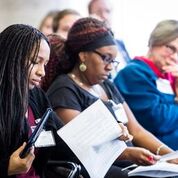
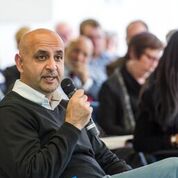
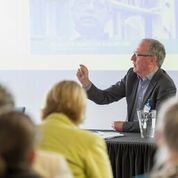
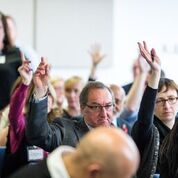
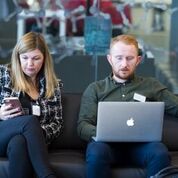
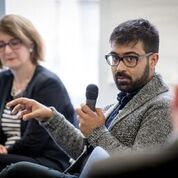
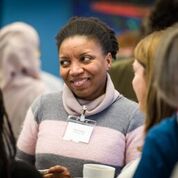
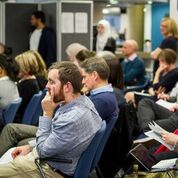 Images copyright of: Natasha Hirst @HirstPhotos
Images copyright of: Natasha Hirst @HirstPhotos
Whether it’s understanding the difference between Sunni and Shia, the background to claims of anti-Semitism in UK politics, or the popularity of “hate” preachers in the US and how they contributed to the rise of Donald Trump, religion plays a key role in many of the biggest news stories of our times. And so it goes without saying that modern journalists need to be religiously literate and aware.
On November 8th, Sandford St Martin trustee Roger Bolton chaired an NUJ Training/ITV Wales workshop for journalists: ‘When Religion Makes the News‘. This was a workshop and networking event for journalists and media representatives from various faith groups and the aim was to promote religious literacy by offering participants expertise, resources and the opportunity both to examine their own personal standpoints while honing their professional skills.
Among those attending the event were three very up-and-coming journalists who worked behind the scenes to support the 2016 Sandford Awards ceremony at Lambeth Palace. We asked them to both report on what happened and to share their thoughts on the conference’s theme. This is what they said:
Nana-Adwoa Mbeutcha: Producer and Presenter for Premier Christian Communications
“Religion is the single most important factor in our identity.” These were the bold words of Dr Jenny Taylor, CEO of Lapido Media, Centre for Religious Literacy in Journalism. Whether you believe that to be true or not, you can’t argue with the fact that religion ultimately determines why people think and behave the way they do, even subconsciously. Broadcaster Roger Bolton, who chaired the event, made the clear statement that you can’t understand the UK without knowledge of Christianity in this country.
Prior to attending ‘When Religion Makes the News’, organised by NUJ Training Wales, I knew that it made sense to know a bit about the religion you were broadcasting about, but as the day went on, I quickly realised how ignorant and naive I was to not realise that to report accurately, “we need a much more sophisticated understanding of faith” (Roger Bolton).
As the day progressed, both journalists and faith representatives heard from Media Representatives from three Abrahamic faiths and we were educated about Muslim life and communities in the UK by Innes Bowen, author of ‘Medina in Birmingham, Najaf in Brent: Inside British Islam’, and Hussein Kesvani, Head of Communications at Theos Think Tank. Who knew there were so many different branches of Islam present in the UK…? Such a simple, yet important, piece of unknown knowledge to many.
What was very enlightening was the “opportunity for self-scrutiny” that was given to the Journalists and Media Academics in an afternoon workshop. Regardless of religious beliefs, we all have a somewhat innate bias and a belief that can shape the way we report or perhaps what we even choose to report. “The Catholic Church is always so out of touch with reality…It’s not rocket science that condoms will stop the spread of AIDS in Africa” some may say. But research the communities a little deeper and remove your bias against the “out-of-date Catholic Church”, and you’ll realise that due to cultural practices and many other factors, not just the absence of condoms, AIDS is being spread. Not only do journalists show a lack of research when they fail to report accurately, we do injustice to those we are reporting to.
To round off the day, we heard from Aaqil Ahmed, Head of BBC Religion and Ethics, and Dr Michael Munnick, Centre for the Study of Islam in the UK. Dr Munnick covered areas such as Political Correctness, Religion in a Secular Society and Understanding what Motivates Religious People.
The event was such an eye opening experience about something that should be such a given. If you’re going to report accurately about a football team, its players and the way they are playing, you need to have real background knowledge about the history of the team and their players, to do a good and honest job. So why don’t we do the same when it comes to reporting about people and society? After all, you cannot separate belief from society.
Ekene Oboko, Researcher / Assistant Producer, CTVC
Along with politics and money, religion has been deemed an unseemly conversation topic at the dinner table. Within journalism, however, money and politics seem to be welcomed enthusiastically at different sort of tables. These tables are the newsroom desks staffed with dedicated political and economic news editors. Despite the inestimable value billions around the world place on their beliefs, and the role religion plays in shaping domestic and foreign affairs – constructive or otherwise – religion is treated, at times, like a distraction from the ‘real’ stories and is therefore downplayed or side-lined – denied a seat at the news desk. This is not to say that news or current affairs does not – to cite a former political press officer – “do God”. They do. The BBC’s commitment to religious programming testifies to that. But religion specialists argue that all journalists, where necessary, should have a deeper understanding of the role religion plays in global and domestic affairs, and also in individuals’ personal lives.
On Tuesday 8th November 2016, the National Union of Journalists in Wales and ITV Wales took on the challenge to promote religious understanding among journalists. The media organisations hosted “When Religion Makes the News” – a one day event held in Cardiff bringing together journalists, representatives from faith communities and broadcast researchers, like my myself, to promote religious literacy.
Roger Bolton chaired the event and in his opening commented that religion was often viewed as an “embarrassment” in society. He suggested that maybe this modern-day puzzlement over religion and those who hold religious beliefs had filtered into news reports, with some mainstream media stories bordering on ignorance when tackling religious issues. Following Roger’s thought-provoking remarks were a series of sessions jam-packed with engaging and informative advice, including a Q & A with the former BBC Head of Religion and Ethics, Aaqil Ahmed. The day also featured valuable networking breaks.
Highlights of the day included a session delivered by Dr Jenny Taylor, previously CEO of religious literacy organisation Lapido Media. She stressed that when journalists engage with stories of a religious nature, they need to be on guard to avoid feeding into the “dominant discourse” and perpetuating religious stereotypes. It’s imperative, she said, for news stories to reflect religion with all its “complexities”.
Press officers from Christian and Jewish faith groups revealed the challenges they have faced when attempting to engage journalists in stories related to their respective communities with reporters appearing to show interest only when the story might impact negatively on the faiths’ adherents. However, Maggie Doherty spoke on the positive media coverage she’d received for The Catholic church in England and Wales’ “The Art of Dying Well” campaign, a digital revamp of the fifteenth century manuscript, Ars Moriendi.
Attendees were treated to a fascinating talk by Innes Bowen, Current Affairs Editor for BBC Radio 4 and the World Service, on the Muslim communities residing in Wales. Former Buzzfeed journalist Hussein Kesvani, now communications consultant at religious think-tank Theos, delivered a detailed and fantastic talk on his experience covering religious affairs, particularly within Muslim communities. He urged journalists to look beyond reporting clichéd stories on Islam, not in aid of some kind of re-balancing exercise, but because they’d find powerful stories within Muslim communities.
The last session of the day was led by Dr Michael Munnik, a former religious correspondent on Canada’s public radio. His talk was targeted at journalists hoping to, or, currently covering religious affairs. For faith communities to trust and support news stories on religion, he said, journalists need to gain the trust of faith communities and “become a safe pair of hands”.
Not being a reporter myself, the most revealing contributions derived from journalists who were not religious correspondents. What came across loud and clear was their willingness to fully engage with the religious dimensions of their stories – unfortunately practical factors, such as deadlines and limited resources, sometimes mean it’s a challenge to explore those stories’ religious elements extensively. Rather than denying religion a seat at the table, it seems journalists, despite wanting to, don’t always even have the time to look for a chair.
You can find out more about When Religion Makes the News by reading blogs from organisers Angela Graham and Anna Wynn Roberts.
And our thanks to Natasha Hirst @HirstPhotos who took the photographs of the event attached to this blog. You can find out more about her work here.
Not sure you’ve got what it takes to win a Sandford St Martin Award in 2017? Read this…
/0 Comments/in General /by Anna McNamee
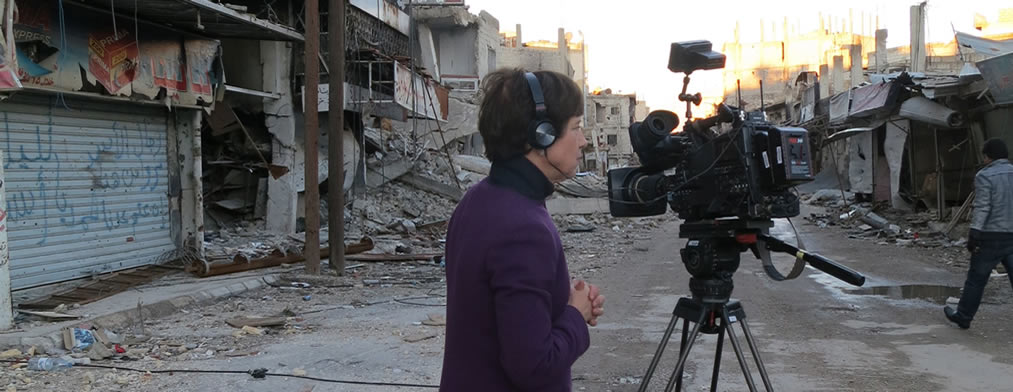
I’ll never forget the first ever conversation I had with the nervous man who would end up editing a series of documentaries about religion I was making.
“Nice to meet you”, he said before apologising, “I’m afraid I’m not very religious.”
“Not religious” I replied, “or not interested in religion.”
Because, while I can understand why people might make a connection, they’re not exactly the same thing are they?
And yet, years later, I still find myself having versions of the same conversation with colleagues. Which surprises me because how can a journalist, documentary or factual programme-maker NOT be interested in religion? What a person believes – or doesn’t believe – so often directly informs the decisions they make, the places they live, the people they know, who they vote for, what they’re willing to fight for, how they identify their sense of ‘self’ even, sometimes, the football team they support.
Open any newspaper and whether it’s a story about how evangelical churches and the right-to-life movement helped secure the presidency for Trump, fears of how anti-Semitism has infected UK party-politics, a story about why ISIS have been targeting Yazidis or why so many North Nigerian schoolgirls remain in captivity, religion matters. And these stories cannot be properly told or understood unless the people who are reporting on them properly consider religion.
And if you need any further proof that religion is interesting, just have a look at the programmes that were shortlisted and what went on to win last year’s Sandford Awards.
There were programmes about the big stories like the war in Syria or the European refugee crisis, but smaller, more personal stories, too, about coming out or the death of a loved one. What all these programme had in common was that none of them shied away from the fundamental journalistic questions: Who are we? How do we identify our place in the world? What do I believe or choose not to believe? And how has this informed the life I live? Questions bound up with religion, ethics, morality, spirituality, call it what you will – they’re all interesting.
Fortunately for me (not to mention the broadcaster we were working for), it turned out that nervous editor was, in fact, very interested in religion. And, if I dare say so myself, we made some good, thought-provoking, timely programmes together.
So… What about you?
Have you made a great programme that explores some of those fundamental questions? If the answer is ‘yes’, then you should probably enter for an Award.
And: are you interested in religion?
If so, then you’ve probably got what it takes to win one.
CONTACT US
Sandford St Martin Trust
Church House
Great Smith Street
London
SW1P 3AZ
Email: info@sandfordawards.org.uk
Tel: 07749875477
Recent blog posts
- Faith in the Future April 2, 2024
- Open letter to the Times re: Media Bill Omission February 27, 2024
- Ethics of Journalism December 1, 2023
Sign the #BeliefMatters petition
In today’s world, religious literacy is more important than ever. But the Media Bill, currently making its way through Parliament, puts this core cultural and civic competency in peril by removing existing obligations for public service broadcasters to provide programming specifically about religion or belief.
Faith is a prime motivator of both individuals and communities. What people believe informs political, economic, ethical and social behaviour.
Good religious broadcasting promotes understanding of what religion and faith are about. It supports and models dialogue between communities.
It nourishes those who believe and provides new perspectives to others.
If you agree, join us in urging the Government to amend the Bill so religion remains a key component of the public service broadcasting remit in the Media Bill.
Sign and share our #BeliefMatters petition.
Because, in the world today, religion and religious literacy matter more than ever before.


